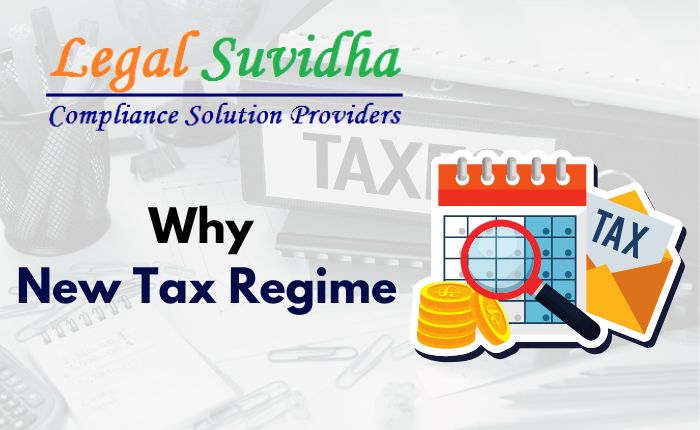Since its implementation in 2020, India’s new income tax system has generated a lot of debate. Many people have thought about the potential effects on taxpayers as a result of the government’s desire for a more straightforward tax system. This article will go into greater detail on the new tax regime system, its effects, and why it is the government’s preferred option.
Introduction
The new income tax regime has brought about significant changes in the way taxpayers in India pay their taxes. The new system offers lower tax rates but eliminates most exemptions and deductions that were available in the old regime. The government introduced the new regime to simplify the tax system and provide a boost to the Indian economy.
Understanding the New Income Tax Regime
Under the new income tax regime, taxpayers can choose between the old and new regimes, depending on what suits them better. The new regime offers lower tax rates but comes with the caveat of eliminating most deductions and exemptions. Taxpayers who opt for the new regime can’t claim deductions for investments made under Section 80C and other sections of the Income Tax Act.
Tax Rates under the New Regime
The new income tax regime offers lower tax rates for taxpayers, depending on their income slabs. Taxpayers with an income of up to Rs. 5 lakhs don’t have to pay any tax. Taxpayers earning between Rs. 5 lakhs and Rs. 7.5 lakhs have to pay a tax rate of 10%. The tax rate increases to 15% for taxpayers with an income between Rs. 7.5 lakhs and Rs. 10 lakhs.
For taxpayers earning between Rs. 10 lakhs and Rs. 12.5 lakhs, the tax rate is 20%. The tax rate increases to 25% for those earning between Rs. 12.5 lakhs and Rs. 15 lakhs. Taxpayers with an income above Rs. 15 lakhs have to pay a tax rate of 30%.
Why is the New Income Tax Regime is prefer by the Government ?
For a number of reasons, the new income tax system has been referred by the government. The fact that it streamlines the tax code and makes it simpler for taxpayers to file their tax returns is one of the key justifications. The majority of deductions and exemptions are eliminated under the new system, which makes it simpler for people to comprehend their tax liability.
Another reason why the new tax system is prefer by the government is the potential impact on the Indian economy. The government hopes that the new regime will encourage taxpayers to spend more, thereby boosting the economy. The lower tax rates can also attract more foreign investments into the country, further boosting the economy.
The new income tax regime in India offers several benefits to taxpayers. Here are some of the main advantages of the new regime:
- Lower tax rates: The new tax system offers lower tax rates for taxpayers, depending on their income slabs. This can lead to significant savings for taxpayers.
- Simplified tax system: The new regime eliminates most exemptions and deductions, making it easier for taxpayers to understand their tax liability. This can save taxpayers time and reduce the need for professional assistance when filing their tax returns.
- Flexibility: Taxpayers can choose between the old and new regimes, depending on what suits them better. This provides flexibility and allows taxpayers to choose a tax regime that best meets their needs.
- Boost to the economy: The government hopes that the new tax system will encourage taxpayers to spend more, thereby boosting the economy. The lower tax rates can also attract more foreign investments into the country, further boosting the economy.
- Reduced tax evasion: The simplified tax system and lower tax rates can also help reduce tax evasion, as taxpayers are more likely to comply with the tax laws when they understand their tax liability and see the benefits of paying taxes.
Overall, the new income tax regime in India offers several benefits to taxpayers and the economy as a whole. By providing lower tax rates, simplifying the tax system, and offering flexibility, the government hopes to encourage more taxpayers to comply with the tax laws and contribute to the growth of the Indian economy.
Comparison between the Old and New Income Tax Regime :
The old and new income tax regimes in India have significant differences that taxpayers need to consider when deciding which regime to choose. Here is a comparison between the two regimes:
- Tax rates: The new tax system offers lower tax rates compared to the old regime, but it eliminates most exemptions and deductions. The old regime has higher tax rates, but taxpayers can avail of various exemptions and deductions to reduce their tax liability.
- Exemptions and deductions: As mentioned above, the new tax system eliminates most exemptions and deductions, while the old regime offers several such benefits. Taxpayers need to evaluate whether the benefits of the exemptions and deductions in the old system outweigh the lower tax rates in the new tax system.
- Standard deduction: The standard deduction under the old regime is higher than the new regime, making it more beneficial for taxpayers who don’t have many deductions to claim.
- Rebate: The new system doesn’t offer any rebates, while the old regime provides a rebate for taxpayers with an income up to a certain limit. This can make the old regime more beneficial for taxpayers with lower incomes.
- Investment options: The old tax system offers various investment options such as Public Provident Fund (PPF), National Savings Certificate (NSC), and others that provide tax benefits. The new regime doesn’t offer any such investment options, making the old system more beneficial for taxpayers who want to invest for tax-saving purposes.
- Complexity: The new regime simplifies the tax system by eliminating most exemptions and deductions, making it easier for taxpayers to understand their tax liability. The old regime, on the other hand, can be more complex due to the various exemptions and deductions available.
Conclusion
The new income tax regime in India has been the talk of the town since its introduction in 2020. The regime offers lower tax rates but eliminates most deductions and exemptions, making it easier for taxpayers to understand their tax liability. The government’s push towards a simplified tax system has been the main reason why the new system is prefer by the government. We hope this article has provided you with a comprehensive understanding of the new income tax system and its implications.
If You have any query then connect with us at [email protected] or you can contact us & stay updated with our latest blogs & articles.









